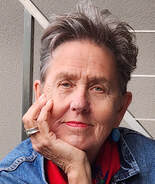
Superannuation is mine as of right, simply because I am lucky enough to be a New Zealand citizen and I’ve survived to the age of 65. Although I have been marking the months off my calendar for at least six months, this fact still seems so unlikely and preposterous, that I can hardly believe it. What a miracle! What a blessing!
In my fifties, when the stresses of a well-paid corporate job literally made me sick, I made the decision to become self-employed. In so doing, I left what economist Guy Standing from the University of London, terms the “salariat”, the class which, for the moment at least, enjoys stable, high-income, full-time employment, to join the class which doesn’t. This class, is what Standling calls the “precariat”, whose working lives are characterised by unpredictability and insecurity.
I had never heard of Standling’s theory back when I walked away from my corporate job, but it didn’t take me long to recognise that I had exchanged one kind of stress for another. I had swapped the life-sapping stress of a secure job - dress codes, senseless policies, endless meetings, unrealistic performance targets, an office bully - for the stresses of financial insecurity. It’s not a choice I regret, although when freelance writing work dried up for a while and I scrambled to find alternative employment, the days of a regular, predictable pay packet, sick leave and paid holidays, shimmered in memory like a long-lost Eldorado.

Without my quite recognising the fact, the engine of social and economic change had shunted me into a siding where a particular subset of the precariat resided: an army of clever and competent older women who, for lack of other employment, stitch together a patchwork of insecure, part-time, minimum-wage jobs as cleaners, care-givers or administrators in small-time charitable trusts and welfare agencies. It seemed that almost overnight, I and my cohort, had become too old and under-qualified, or too old and over-qualified.
When I rather shamefacedly admitted to acquaintances that I was counting down the days to my 65th birthday,
I was surprised to find how many others - women in particular, but men as well - were doing exactly the same thing. It’s not that we are a lazy bunch who can’t wait to quit working and take to our rocking chairs. In fact many, especially if they still have mortgages or are supporting family, will need to keep on working for many years to come. Many already devote hours of volunteer work to community, environmental and sporting organisations and will probably increase their involvement when they are able to retire from full-time employment.
The real reason why so many look forward to becoming what English officialdom calls an Old Age Pensioner (OAP), particularly if they have been living the precariat life, is the peace of mind that comes from knowing that superannuation will give them a predictable weekly income, whatever the vagaries of their employment situation.
However, there’s much else that adds to the joy of becoming a superannuant and arriving at last on the shores of Super-Gold-Card-Land: handsome discounts on petrol at NPD and Challenge service stations; free travel on local bus services during off-peak hours and all weekend; discounted movie and theatre tickets. I’m sure if I put my still-sharp mind to it, I could probably winkle out a discount for everything, up to and including my own funeral.
There is a downside to becoming a superannuant of course. No silver lining comes without a cloud. The downside is this: if you embrace OAPdom too enthusiastically you are at risk of becoming a Grumpy Old Man, or a Grumpy Old Woman. Germaine Greer succumbed to this temptation well before she hit 65, but she’s always been exceptional.
I’m hope that by staying a Young Old Age Pensioner rather than an Old Old Age Pensioner I will avoid the worst irritability and cantankerousness of the senior years. However, I can already feel my inner Grumpy Old Woman stirring and agitating. I’m not sure I’m going to be able to keep her quiet indefinitely.
Last month she demonstrated a certain tetchiness when a certain shop assistant ignored her for far too long. Then, a fortnight ago she got quite crabby when a cyclist hurtling towards her on a shared pathway simply bellowed “coming through!” and expected her to get out of the way. And just last week, I caught her not suffering a fool gladly.
 RSS Feed
RSS Feed

